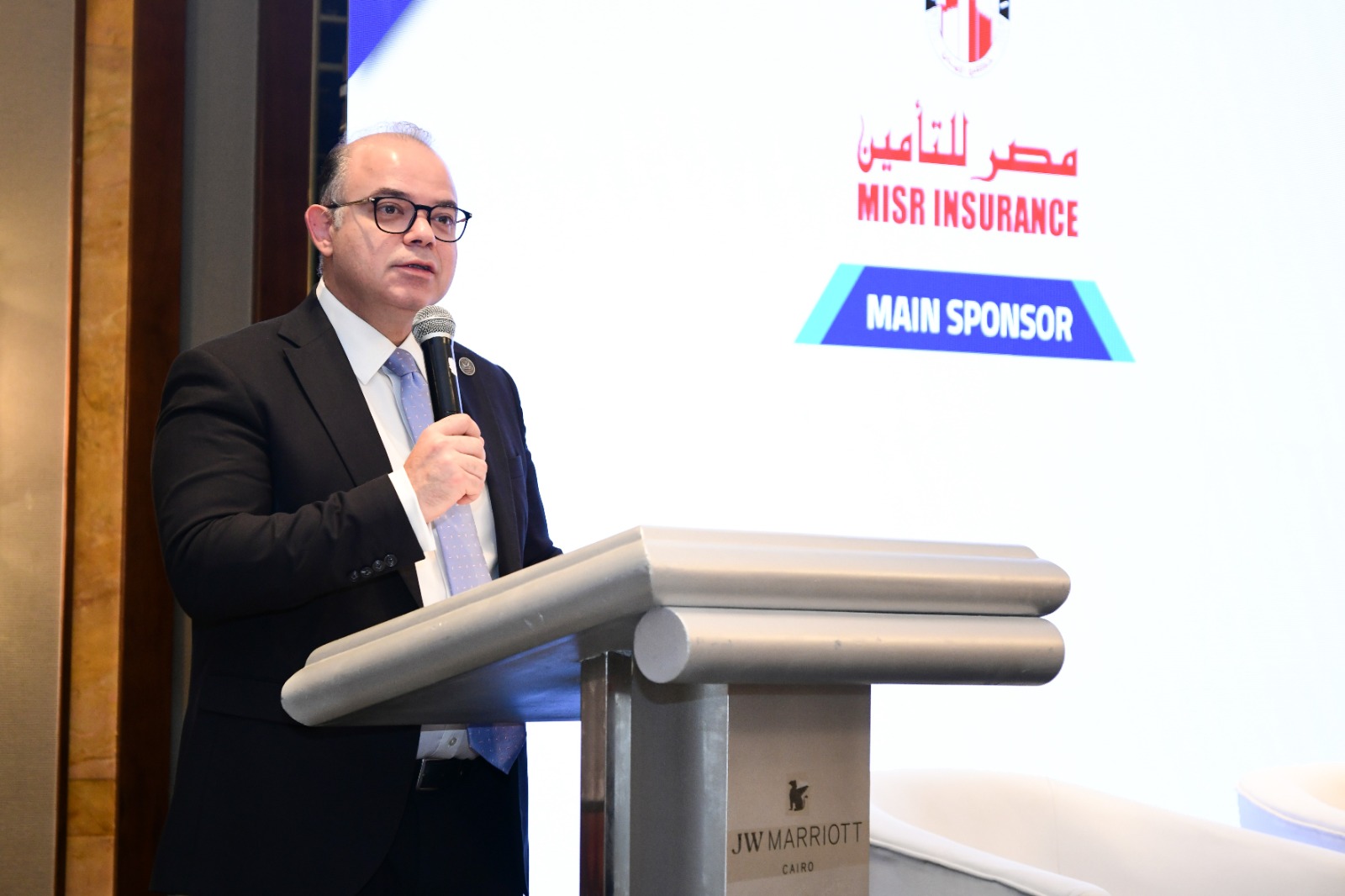Dr. Mohamed Farid – FRA Chairman:
- Marine insurance is essential for international trade, providing stability and security for commercial transactions.
- The new Unified Insurance Law will bolster the financial strength of insurance companies, contributing to overall financial stability.
- Developing comprehensive climate risk databases is critical for robust and effective planning within the marine insurance sector.
- FRA firmly supports “differentiated responsibility” in global climate efforts, acknowledging its vital role in helping developing countries confront the escalating impacts of climate change.
- We continuously track the swift impacts of climate change and the escalating frequency of natural disasters, enabling us to evolve risk management strategies.
- The substantial expansion of infrastructure and domestic transportation networks significantly enhances Egypt’s capacity to attract investments.
Dr. Mohamed Farid, FRA Chairman delivered the keynote address at IUMI MENA Forum 2025. The Insurance Federation of Egypt “IFE”, in collaboration with the International Union of Marine Insurance (IUMI), organized the event. The forum witnessed prominent attendees, including Frédéric Denèfle , IUMI President; Rear Admiral Tarek Abdullah, Head of the Maritime Transport Sector at the Ministry of Transport; Alaa El-Zohairy, Chairman of the Egyptian Insurance Federation; alongside key FRA officials and representatives from leading Egyptian insurance firms.
During his speech, Dr. Farid underscored marine insurance’s foundational role in driving international trade growth and its critical contribution to global economic integration and free trade. He emphasized its importance in mitigating risks associated with cross-border cargo transport, noting that the very genesis of marine insurance was a decisive factor in the evolution of trade.
FRA Chairman also highlighted Egypt’s historically pivotal role in international trade, a distinction stemming from its unique geographical position both before and after the opening of the Suez Canal. He pointed out that Egypt’s first marine insurance legislation was enacted in 1888, following the canal’s inauguration in 1869. This legislative milestone solidified Egypt’s status as a significant maritime transport and trade hub amidst growing international commerce and rising shipping risks. Subsequently, Egypt witnessed the introduction of its first local marine insurance product in 1931.
Dr. Farid affirmed FRA’s unwavering commitment to balance insurance protection needs with economic advancements to strengthen the insurance sector’s capabilities. This dedication culminated in the Unified Insurance Law, a transformative development for the Egyptian insurance market’s regulatory framework. He emphasized that the strong performance of domestic insurance companies is indispensable for enabling the Egyptian market to effectively interact with global counterparts, acting as a crucial conduit for connecting both local and international investors. He concluded by reiterating FRA’s sustained efforts to enhance the regulatory framework, thereby reinforcing this essential role.
This initiative was crucial for boosting the sector’s efficiency and effectiveness. New regulations introduced a minimum capital requirement for insurance companies, mandating a two-phase increase to reach EGP 600 million in the second phase, significantly enhancing financial solvency.
Beyond capital, specific rules and ratios were established for investing insurance and reinsurance company funds. This strategically balances return with risk, optimizing asset management efficiency. To foster transparency and financial governance, mandatory deadlines were also set for preparing and presenting financial statements for all insurance entities. Dr. Farid highlighted that sufficient capital empowers companies to invest more effectively and refine their risk assessment mechanisms.
Dr. Farid further stressed the critical need to build and develop comprehensive climate risk databases. This is essential for robust planning across the insurance sector, particularly for marine insurance, given its direct ties to climate risks. He warned that a lack of accurate data severely impedes strategic planning, especially regarding carbon emissions from maritime transport fuels.
He also noted that FRA is intently monitoring accelerating climate changes, especially with the escalating frequency of natural disasters. Events once occurring every 70-80 years now repeat with alarming severity every 7-8 years. This dramatic shift presents substantial challenges for both regulators and insurance companies, demanding the urgent and continuous development of climate risk management tools.
Moreover, FRA Chairman advocated for the “differentiated responsibility” principle in tackling climate challenges. He argued that justice and accountability demand that industrially developed nations, historically responsible for pollution, contribute more significantly to global climate mitigation and adaptation efforts. This would channel crucial funding to developing countries, enabling them to build climate-resilient infrastructure and access clean energy technologies.
In a related context, Dr. Farid observed Egypt’s escalating appeal to international investors, particularly from East Asia and Europe. These investors are increasingly eyeing the Suez Canal Economic Zone for new export-oriented manufacturing facilities. This trend is driven by a global shift towards diversifying supply chains and a growing reliance on clean energy sources in industrial production.
Dr. Farid concluded his address by highlighting Egypt’s remarkable boom in infrastructure projects and transportation networks over the past five years. These advancements are significantly bolstering Egypt’s capacity to attract international investments. He noted that the enhanced efficiency and quality of local road networks now facilitate easier and larger investment flows. FRA, he emphasized, remains committed to foster a robust and effective insurance market, with a particular focus on marine and sustainable insurance.
Last modified: June 2, 2025
